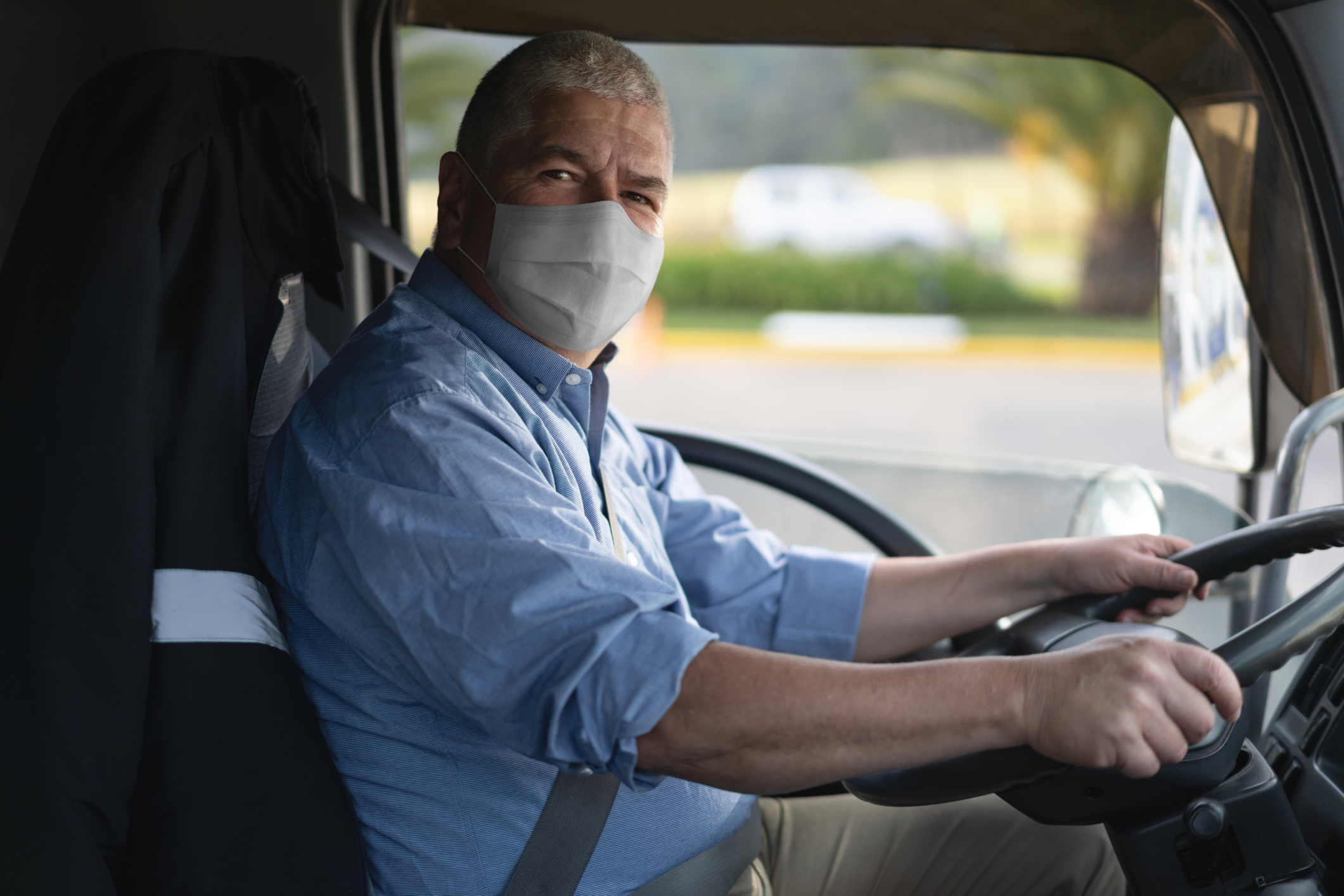COVID is driving disruption in the workplace, and parcel carriers and 3PL providers are not immune to that change. Whether driven by management, the employee, or government, the response to the pandemic has forever changed the way we live, work and play. We are entering a period of hypersensitivity in the workplace, especially as it applies to preventing the spread of infectious disease while at work. That hypersensitivity will continue to drive change.
Lasting effects of the COVID-19 response may include:
- Continued use of protective gear with some drivers choosing to still wear protective gear and practice social distancing for their own well-being.
- Parcel carriers possibly requiring non-customer facing employees in hub and local sort facilities to still wear face masks to protect against the spread of infectious disease, a measure intended to reduce absenteeism.
- Mandatory vehicle disinfecting as a requirement for when drivers change vehicles.
- Carriers may elect to limit capacity at their busy retail counters, and customers may choose to socially distance on their own while visiting carrier customer counters.
- We could see additional administrative staff working from home.
- Legacy sales force models dependent on the face-to-face sales call are going away and being replaced by electronic interface tools. FedEx has kept their sales force at home for a year now and sales are doing just fine.
- An employee’s right-to-know about other employee’s infectious illnesses may need to be redefined, resulting in a conflict with HIPAA privacy rules, specific to illness and treatment.
- Carriers may start sending noticeably ill employees home; as today, it is common for an employee to continue to work, even while obviously ill.
- COVID-driven changes will result in higher operational costs, which will be passed on to the customer, driving up the cost of delivering parcels.
- Contactless Delivery – This could be the most significant change as recipients may no longer choose to interact with a driver if possible, and could result in:
- Recipients choosing not to visit a staffed retail access point to retrieve their shipments where they must interact with a person to retrieve their shipment. This would be especially applicable to e-commerce shipments.
- US carriers may move more aggressively towards developing fully automated/contactless parcel locker networks.
- Recipients demanding released shipment delivery, which could drive up package theft.
- Homeowners having private lock boxes installed to secure the release of shipments, to include groceries.
Are these changes an overreaction?
You could easily say that my suggestions for possible changes in the parcel carrier/3PL workplace are an overreaction, but I think not for three primary reasons:
- We live in an overtly litigious environment. If employees do not feel safe in the workplace, they are more likely to pursue litigation to force change resulting in safer workplaces.
- You cannot help but take notice of the amazing decline in flu cases this past flu season. The decline is being attributed to mandated social distancing and the wearing of protective gear like face masks, all driven by the Pandemic. This could be justification or even an incentive for continuing COVID similar precautionary measures at the employer level or demanding such protections at the employee level.
- The customer will take notice and respond favorably to a safer carrier interface promoted via contactless delivery solutions.
What’s your take?
Change in the parcel carrier/3PL workplace will continue to occur because of COVID, and e-commerce deliveries will be disproportionately impacted. The question begs, are the suggested changes worth serious consideration, or are they an over-reaction?
About the author
Contributing editor Dean Maciuba is Managing Partner of Last Mile Experts, an e-commerce last mile CEP consultancy. He advises clients on e-commerce, last mile, and courier express & parcel matters in the US and Canada.


